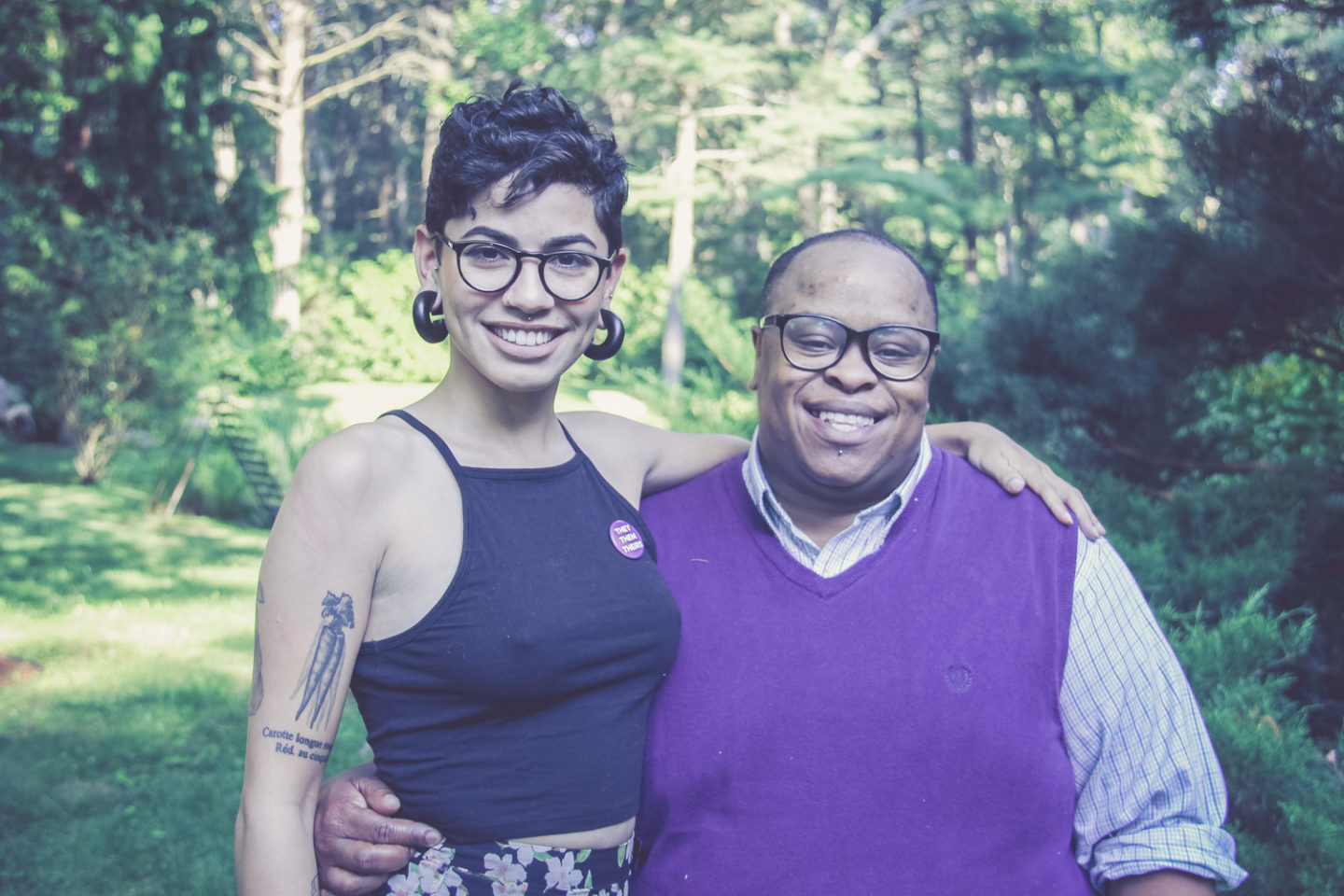Abortion access has to be for everyone.
In conversations around abortion rights, we (people who talk about abortion) use the word “women” a lot. As in, women need access to safe abortion, women deserve the right to determine what’s best for themselves and their families. When we only talk about women, and when we assume that abortion seekers are always women, we erase the experiences of trans and non binary folks who want and have abortions.
“There hasn’t been a time when I wasn’t telling my abortion story,” says Cazembe Jackson. Jackson, who had an abortion in college after he became pregnant as the result of rape, is a storyteller with We Testify, a project of the National Network of Abortion Funds who aims to broaden the spectrum of abortion stories we hear. For example, instead of exclusively stories by white, wealthy cis women, We Testify seeks to amplify the voices of trans and non-binary folks, as well as people of color and trans and those from rural communities.
“I wanted to be the person I was looking for,” Jackson told me. “I know there are other people like me, black trans men, who need to be able to see people like me talking about abortion access.” In his abortion story, he also emphasizes the importance of seeing and hearing trans men in conversations around pregnancy.
“No one is talking about pregnancy and childbirth in a trans inclusive way,” he says. “We need to separate gender from the ability to reproduce, but we only talk about removing uteruses and then acting like they never existed.”
Abortion access is one thing – but who do we want to be able to access abortion? If you’re poor or you live in an area with no clinic, for example, you should still be able to get an abortion, and if you’re an organization advocating for everyone, everyone should be part of the conversation. “It’s not justice if only a select group of people can get it,” says Jackson. “If you don’t have a job, the choice to have an abortion isn’t really a choice. Everyone can’t pay for it.”
Jack Qu’emi Gutiérrez had an abortion in college. “I was one of the only trans person who was talking about my abortion experience as trans person,” they said. By the time they met up with We Testify organizer Renee Bracey Sherman, they had had many encounters with organizations who theoretically intended to implement trans and non binary inclusion, but weren’t actually trying that hard. “People say stuff like, “Oh, we’ll get there,” and “This is Jack, her pronouns are they/them. I keep experiencing these things in supposedly progressive spaces, so I have to keep talking about it.”
“When you close down a clinic that provides abortion, you’re also closing down access to testosterone and other kinds of trans health care,” says Lizz Winstead of Lady Parts Justice League. Lady Parts Justice got its name from a 2012 incident in the Michigan statehouse in which Representative Lisa Brown was told she could not use the word vagina when talking about a bill about transvaginal ultrasounds. The Speaker of the House suggested “lady parts” as a more appropriate alternative. While Lady Parts Justice does not claim to work with a reproductive justice framework (it’s a self described abortion rights organization), Winstead emphasized that their traveling company, which does comedy as well as clinic escorting and other services in communities where abortion is openly stigmatized and inaccessible, includes trans and gender non-conforming people. “Seeing yourself on stage is vital,” she says. “This is a really good topic to be talking about constantly.”
If it weren’t already abundantly clear, creating trans inclusive spaces around abortion is not just about making changes on paper – it’s about manifesting intention, and that means, among other things, showing up in the clinic when trans folks are seeking and getting the abortion. This is as simple as listening and paying attention when the patient states their gender, not misgendering them, and if you do, apologizing and not doing it again. “Language makes a world of difference,” says Jackson.
In addition, suspend your questions. A medical procedure is a vulnerable moment, and it’s not the time to ask someone about their gender identity, their intentions for transition (short answer – it’s none of your business), or anything else that might be crossing your mind. If it’s not medically relevant, don’t bring it up.
If you’re trans or non-binary, what should you keep in mind when going to get an abortion? “Be firm about who you are,” says Qu’emi Gutiérrez. However, they emphasize the importance of self care before, during, and after the procedure. “If you just want to move on with your life, you might not want to educate your provider just then.”
Jackson suggests taking a buddy to your abortion, as well as keeping in mind that you’ll likely be misgendered. “Don’t allow it to make you feel like the gender that you understand is wrong. Had I known that, it would have hurt a lot less in that area.”
Cover image courtesy of National Network of Abortion Funds.




comments